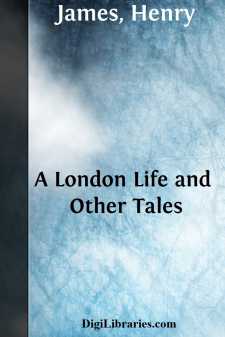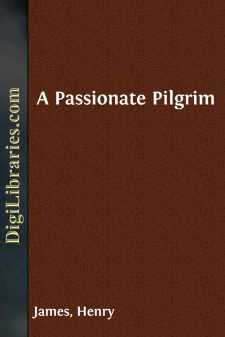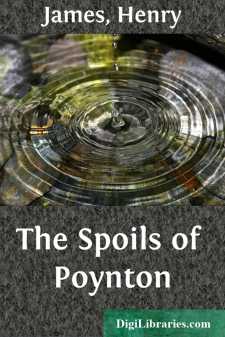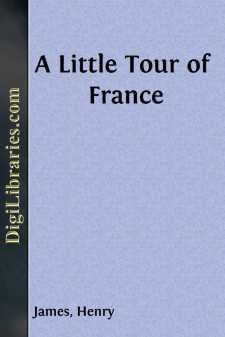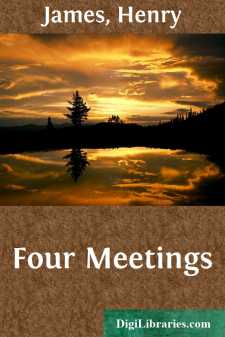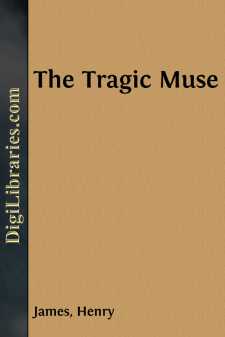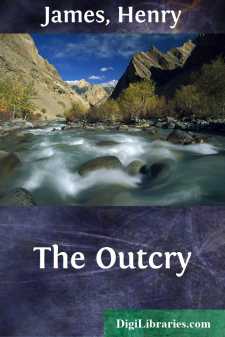Categories
- Antiques & Collectibles 13
- Architecture 36
- Art 48
- Bibles 22
- Biography & Autobiography 813
- Body, Mind & Spirit 141
- Business & Economics 28
- Children's Books 12
- Children's Fiction 9
- Computers 4
- Cooking 94
- Crafts & Hobbies 4
- Drama 346
- Education 46
- Family & Relationships 57
- Fiction 11826
- Games 19
- Gardening 17
- Health & Fitness 34
- History 1377
- House & Home 1
- Humor 147
- Juvenile Fiction 1873
- Juvenile Nonfiction 202
- Language Arts & Disciplines 88
- Law 16
- Literary Collections 686
- Literary Criticism 179
- Mathematics 13
- Medical 41
- Music 40
- Nature 179
- Non-Classifiable 1768
- Performing Arts 7
- Periodicals 1453
- Philosophy 64
- Photography 2
- Poetry 896
- Political Science 203
- Psychology 42
- Reference 154
- Religion 513
- Science 126
- Self-Help 83
- Social Science 81
- Sports & Recreation 34
- Study Aids 3
- Technology & Engineering 59
- Transportation 23
- Travel 463
- True Crime 29
A London Life and Other Tales
by: Henry James
Description:
Excerpt
A LONDON LIFE
I
It was raining, apparently, but she didn't mind—she would put on stout shoes and walk over to Plash. She was restless and so fidgety that it was a pain; there were strange voices that frightened her—they threw out the ugliest intimations—in the empty rooms at home. She would see old Mrs. Berrington, whom she liked because she was so simple, and old Lady Davenant, who was staying with her and who was interesting for reasons with which simplicity had nothing to do. Then she would come back to the children's tea—she liked even better the last half-hour in the schoolroom, with the bread and butter, the candles and the red fire, the little spasms of confidence of Miss Steet the nursery-governess, and the society of Scratch and Parson (their nicknames would have made you think they were dogs) her small, magnificent nephews, whose flesh was so firm yet so soft and their eyes so charming when they listened to stories. Plash was the dower-house and about a mile and a half, through the park, from Mellows. It was not raining after all, though it had been; there was only a grayness in the air, covering all the strong, rich green, and a pleasant damp, earthy smell, and the walks were smooth and hard, so that the expedition was not arduous.
The girl had been in England more than a year, but there were some satisfactions she had not got used to yet nor ceased to enjoy, and one of these was the accessibility, the convenience of the country. Within the lodge-gates or without them it seemed all alike a park—it was all so intensely 'property.' The very name of Plash, which was quaint and old, had not lost its effect upon her, nor had it become indifferent to her that the place was a dower-house—the little red-walled, ivied asylum to which old Mrs. Berrington had retired when, on his father's death, her son came into the estates. Laura Wing thought very ill of the custom of the expropriation of the widow in the evening of her days, when honour and abundance should attend her more than ever; but her condemnation of this wrong forgot itself when so many of the consequences looked right—barring a little dampness: which was the fate sooner or later of most of her unfavourable judgments of English institutions. Iniquities in such a country somehow always made pictures; and there had been dower-houses in the novels, mainly of fashionable life, on which her later childhood was fed. The iniquity did not as a general thing prevent these retreats from being occupied by old ladies with wonderful reminiscences and rare voices, whose reverses had not deprived them of a great deal of becoming hereditary lace. In the park, half-way, suddenly, Laura stopped, with a pain—a moral pang—that almost took away her breath; she looked at the misty glades and the dear old beeches (so familiar they were now and loved as much as if she owned them); they seemed in their unlighted December bareness conscious of all the trouble, and they made her conscious of all the change. A year ago she knew nothing, and now she knew almost everything; and the worst of her knowledge (or at least the worst of the fears she had raised upon it) had come to her in that beautiful place, where everything was so full of peace and purity, of the air of happy submission to immemorial law....


